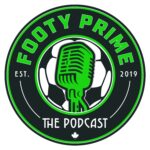
What does Australia’s willingness to use psilocibin and MDMA mean for mental health?

For me, it sounded like a great Saturday night.
The government of Australia recently approved using MDMA and psilocibin to treat people with PTSD and depression, the first country on the planet to repurpose two drugs that many of us have used strictly on a recreational level.
Australia to prescribe MDMA and psilocybin for PTSD and depression.
The re-emergence of psilocybin medicine. When will the U.S. and the rest of the world legalize psilocybin and psychedelics? Jamaica, Portugal, has and soon, we hope, Mexico and many others. pic.twitter.com/dTGqgmTLYP
— Paul Stamets (@PaulStamets) July 1, 2023
Both drugs have been synthesized, meaning the drugs will not be actual ecstasy and shrooms, but pharmalogically manufactured substances.
The effort is part of what’s called Psychedelic Assisted Therapy, which is an intensive form of psychotherapy that lasts 40 hours, involving two trained therapists working with each patient. Therapists go through preparation and dosing sessions where patients receive between 1 to 3 doses of the drug in in-patient environment, followed by an 8 hour session post-dosing to help monitor potential improvements.
MDMA, a mainstay drug in subcultural spheres such as the rave scene, has long thought to be a valuable weapon in the fight against PTSD. The drug was already being used in the 1970s and 1980s by some psychiatrists to treat people with PTSD, but the American government, responding to the popularity of the drug in a recreational sense, made the drug illegal.
Australia is set to become the first country in the world to legalize clinical prescribing of MDMA, better known as ecstasy, and psilocybin — the main psychoactive ingredient in magic mushrooms — for certain mental health disorders. https://t.co/O7nxijxZ7v
— CNN (@CNN) July 1, 2023
In 2017, the US recognized MDMA as a breakthrough therapy, especially when administered to ex-military personnel.
Psilocibin, the key ingredient in magic mushrooms, has been long thought to be a drug used by humans for thousands of years, often resulting in religious experiences. For centuries, humans have used psilocibin as a way to traverse depression, grief, and their own mortality.
On a personal note, I once suffered from irregular serotonin levels after misusing ecstasy for years as a rave promoter. One night I took a quarter ounce of magic mushrooms and, after a very powerful trip, the symptoms went away completely, I can’t explain the science behind it, but they haven’t been back since.
Australia is allowing legal access to MDMA-assisted therapy, unexpectedly turning itself into a guinea pig ahead of potential FDA approval in the United States. https://t.co/rUs9L7Qz8N
— The Washington Post (@washingtonpost) June 30, 2023
And there are countless stories like that inside both controlled studies, and random experiences.
With Australia leading the charge, countries like Canada and the United States now have a more comfortable path to robust studies involving these drugs. Hopefully the governments in those countries can shed the public relations worries and separate the recreational from the therapeutic.










